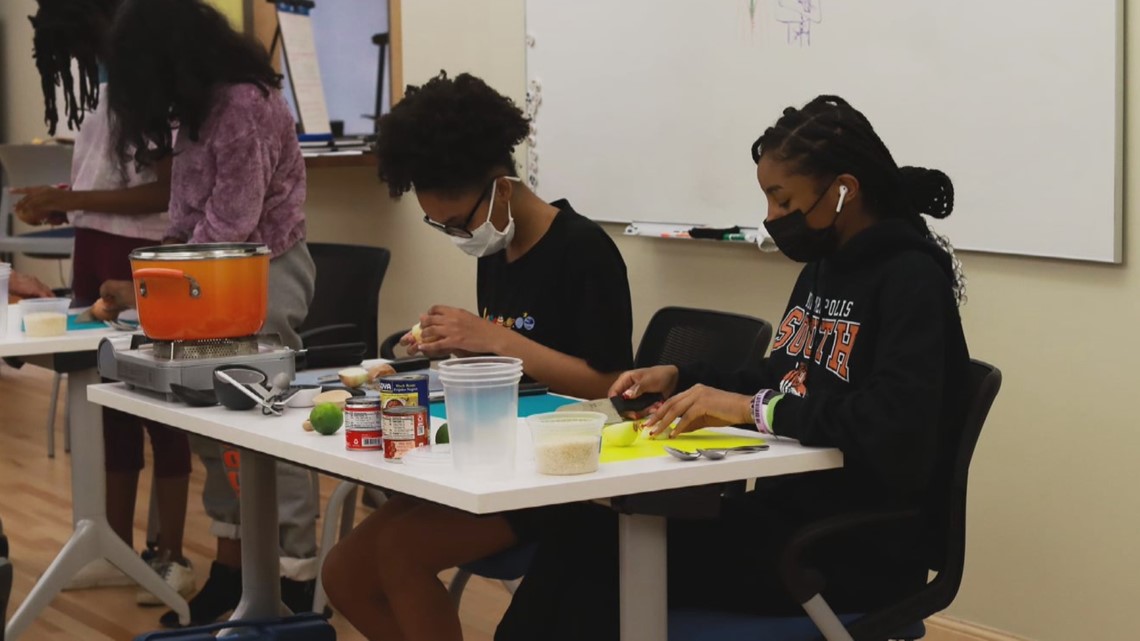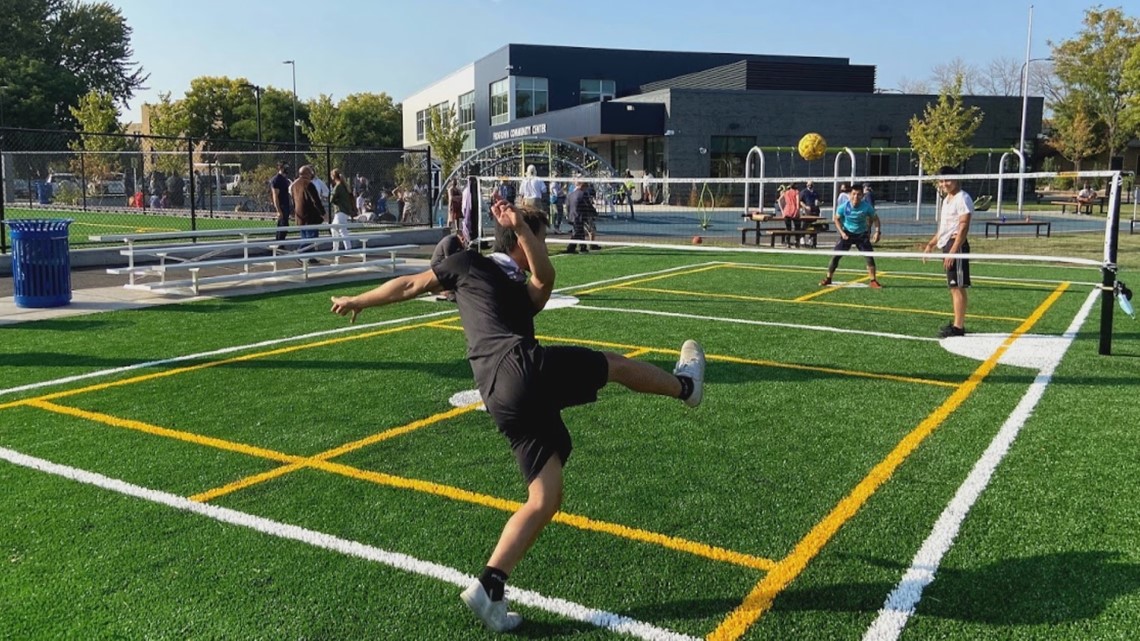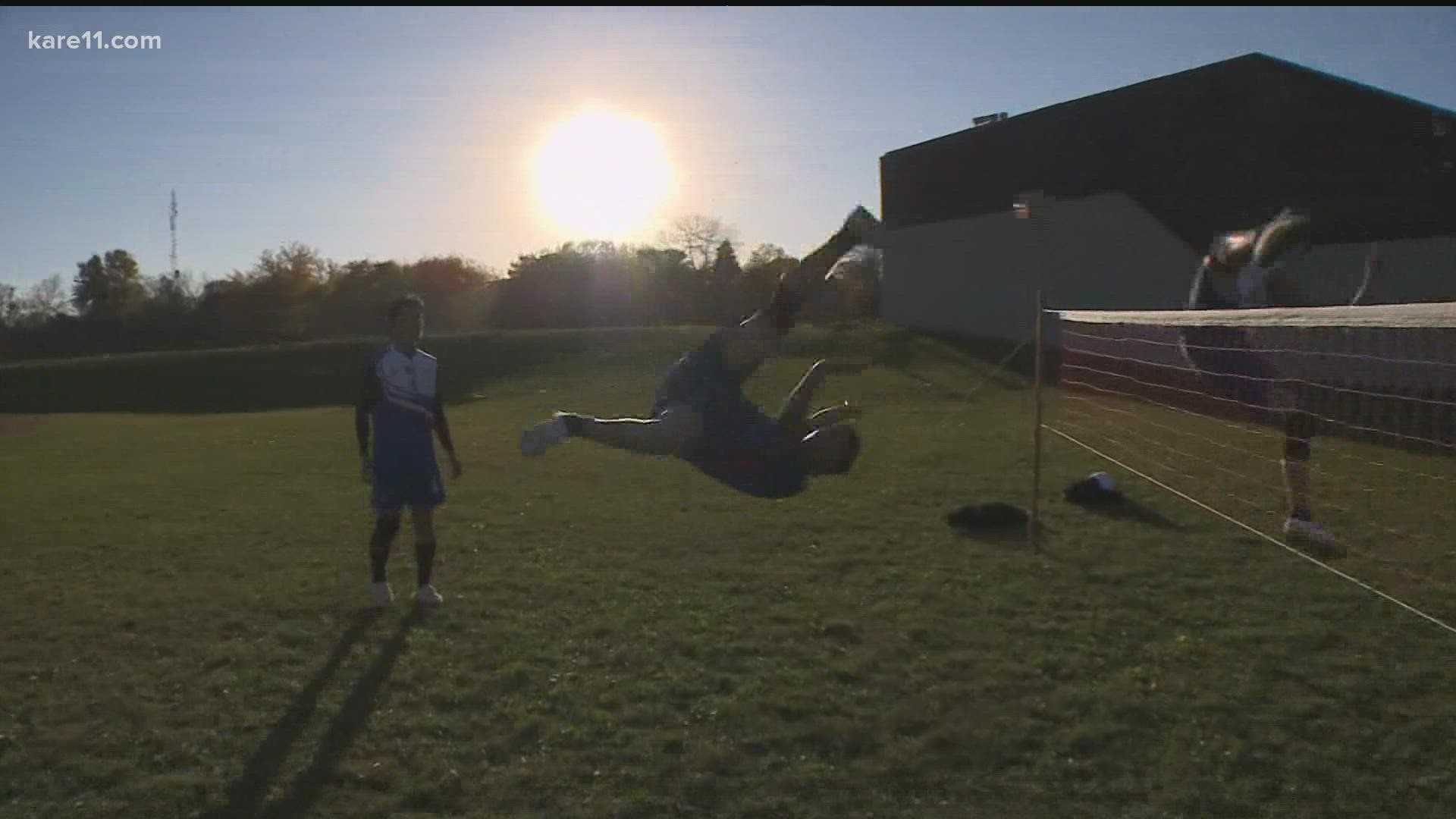MINNEAPOLIS, Minnesota — It's been four years since Minnesota hosted the Super Bowl and we're still seeing the impact of the Big Game.
The Minnesota Super Bowl Host Committee Legacy Fund provided 52 grants to 52 community projects across the state in the year leading up to Super Bowl LII.
The 52 Weeks of Giving campaign resulted in more than $5.5 million being invested in programs focused on improving kids' health and wellness.
"It was an incredible experience," said Adrienne Diercks, founder and executive director of Project Success in Minneapolis.
The youth development organization helps inspire students to dream about the future. Project Success works with every Minneapolis 6-12 grader, which ends up being nearly 16,000 students.
In August 2017, Project Success received a $100,000 Legacy grant. That seed money helped them launch the Project Success Institute — a place for students to gain life skills.


"We have five full certificates... our certificates are in cooking, in coding, in personal finance... we even added bike repair," Diercks said. "We've done things from performing arts to podcasts. So students earn a 10-week certificate. This is what's incredible... since that time over 600 students have earned 1,000 certificates in the Project Success Institute. We couldn't more grateful. It's just been a fantastic thing."
The initial grant also led to long-term partnerships.
"We've done some incredible things like trips with the Minnesota Vikings to Washington, D.C. and the National Museum of African American History and Culture. All from a small dream many years ago," Diercks said.
St. Paul Parks and Recreation received a $100,000 grant to build new courts at Marydale Park in St. Paul and Duluth & Case Recreation Center for the sport Sepak Takraw.


Sepak Takraw, also known as kick volleyball, originated in Southeast Asia.
"It's an extremely popular sport in Asian communities with the Karen and Hmong communities which... are a big part of our community here in St. Paul. So they [the courts] are very highly used," said Mike Hahm, director for St. Paul Parks and Rec.
According to Hahm, the Sepak Takraw public courts were the first of their kind in the nation.
"They're so important because although it's a really popular activity, there's not a lot of dedicated court space for that," Hahm said.
The courts have been so popular that they went on to add Sepak Takraw courts at West Minnehaha and Frogtown Community Centers.
After 52 Weeks of Giving, Hahm said, "I'm confident that it's going to provide service for 52 years."
You can read the full list of grant recipients here.

